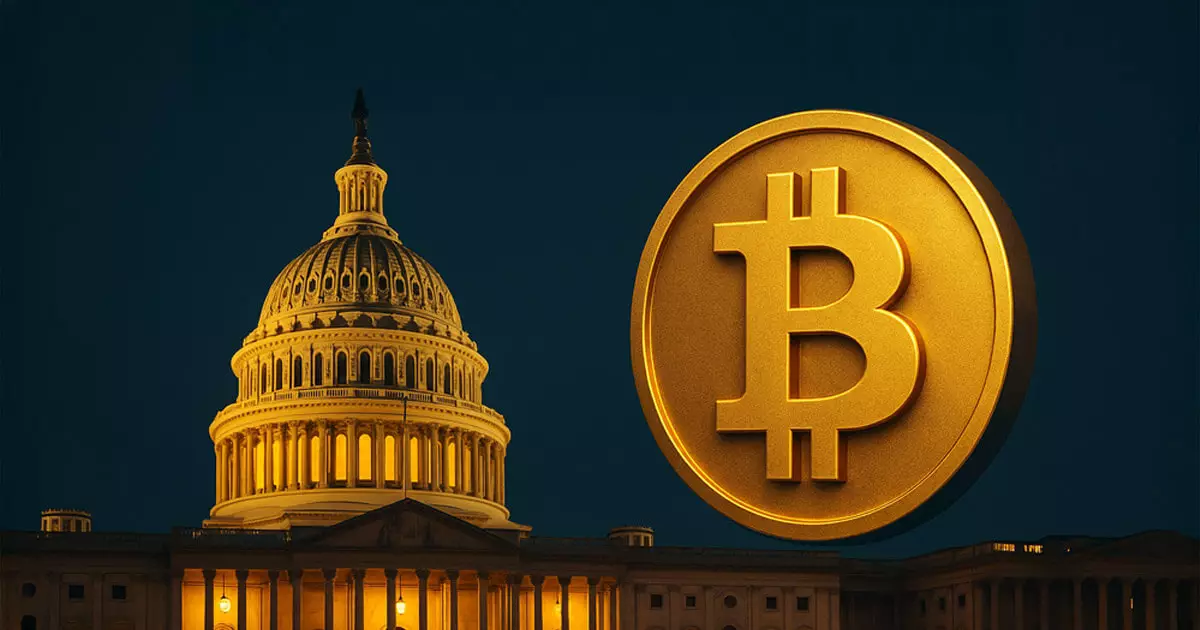Recent developments signal an audacious drive by corporate cryptocurrency magnates to embed Bitcoin into the fabric of American financial policy. A coalition of influential Bitcoin holders, led by top-tier executives from firms like Strategy, MARA, and Riot Blockchain, has openly rallied behind legislation that could significantly alter the country’s monetary landscape. Their formation of the Treasury Council suggests not only confidence in Bitcoin’s potential but also an aggressive stance to reorient federal treasury strategies toward digital assets. While advocates hail this as a sign of innovation and forward-thinking, a skeptic might reasonably view it as a risky leap into an uncharted financial realm, potentially exposing the nation to volatility and geopolitical vulnerabilities.
What is particularly troubling is the coalition’s direct influence over congressional decisions. Their public endorsement of the BITCOIN Act, accompanied by meetings with lawmakers, hints at a concerted attempt to shift policy in favor of cryptocurrency nationalization. This maneuver raises questions about the balance of power—are we allowing corporate interests to steer national economic strategy under the guise of modernization? Such moves threaten to compromise the delicate stewardship of fiscal policy, steering it into a speculative zone that could destabilize the long-term strength of the US dollar and traditional financial institutions.
The Risks of a Government-Backed Cryptocurrency Reserve
The plan to establish a federally-backed Bitcoin reserve—initially seeded with seized crypto assets—might sound innovative, but it embodies considerable peril. The notion of the government holding up to a million Bitcoin, valued billions of dollars, in a long-term emergency fund resembles an over-ambitious bet on the future success of digital currencies. The concept of acquiring Bitcoin through Fed reserves or gold-based Treasury adjustments introduces a layer of financial complexity that could backfire, especially considering Bitcoin’s notorious volatility and susceptibility to market manipulation.
Furthermore, automating a mandate that the Treasury must hold these assets for at least 20 years effectively locks in a highly speculative asset class. This long-term holding strategy assumes Bitcoin’s value will only appreciate, dismissing the potential for crashes, regulatory crackdowns, or technological obsolescence. If such risks materialize, the US government could find itself with a significant quantity of illiquid, highly volatile assets, jeopardizing the national reserves’ stability and reserve integrity. This scenario exposes a core weakness: the belief that Bitcoin’s ascent will be steady and linear, which contradicts its inherently unpredictable nature.
Legislative and Political Ramifications: A Fault Line in Federal Policy
The bipartisan support for this initiative paints a complex picture. While some lawmakers see it as a chance to modernize, others warn of the dangerous precedent it sets. The intertwining of corporate interests with political influence threatens the objectivity needed to craft prudent financial policies. The BTC acquisition plan, funded through controversial methods like reserves and gold valuation adjustments, smacks of fiscal experimentation that, at best, borders on irresponsibility.
President Trump’s executive order establishing a strategic Bitcoin stockpile appears more symbolic than functional. It signals an acknowledgment that cryptocurrencies are now part of the conversation but stops short of actual government action, disappointing markets eager for definitive steps. This hesitation underscores the uncertainties and risks involved, and a cautious observer might interpret this as a sign of impending instability—an unstable experiment that could undo years of sound monetary policy if not carefully contained.
Ultimately, moving toward a government-backed Bitcoin reserve dominated by corporate lobbying reveals a larger trend: the transformation of the US financial system into a speculative playground for those wielding significant digital asset wealth. While innovation is vital, blind faith in decentralized assets as a safeguard for national prosperity is a gamble few should endorse without rigorous oversight and accountability.

